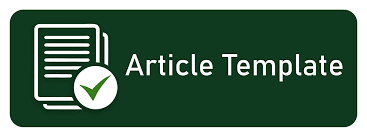PENERAPAN MODEL PEMBELAJARAN PROBLEM BASED LEARNING PADA MATERI HIDROKARBON DALAM MENINGKATKAN HASIL BELAJAR KOGNITIF PESERTA DIDIK
DOI:
https://doi.org/10.30862/accej.v4i1.313Abstract
Abstract
The education had important role in efforts to progress in the future. The purpose of this study was to improve student learning outcomes through the application of the Problem Based Learning learning model on the colligative nature of the solution in class XII IPA SMA YPK Immanuel Manokwari and to see the large increase in student learning outcomes on the subject matter of the colligative nature of the solution. This study used a classroom action research model (PTK) with Kurt Lewis's CAR model which consisted of two cycles with each cycle having four stages, namely planning, action, observation and reflection. The increase in student learning result can be seen from the pre-test and post-test results that have been given to students. The data obtained were then analyzed using descriptive analysis techniques with the help of Microsoft Excel 2010 to describe the improvement in each cycle. After being analyzed, it is seen that the application of the Problem Based Learning learning model can improve the learning outcomes of students in class XII IPA SMA YPK Immanuel Manokwari on the colligative nature of the solution. This can be seen from the increase in learning outcomes of students who have reached KKM ≥ 70 in cycle I by 40%, increasing by to 80% at the end of cycle 2 with high classical completeness. In addition, there is an increase in the average learning outcomes of cycle 1 by 56.33 to cycle 2 by 72.68.
Â
Keywords: Problem Based Learning, learning outcomes, colligative solution, Classroom Action ResearchDownloads
Published
How to Cite
Issue
Section
License
License and Copyright Agreement
In submitting the manuscript to the journal, the authors certify that:
- They are authorized by their co-authors to enter into these arrangements.
- The work described has not been formally published before, except in the form of an abstract or as part of a published lecture, review, thesis, or overlay journal. Please also carefully read Arfak Chem: Chemistry Education Journal Posting Your Article Policy at http://journalfkipunipa.org/index.php/accej/about
- That it is not under consideration for publication elsewhere,
- That its publication has been approved by all the author(s) and by the responsible authorities – tacitly or explicitly – of the institutes where the work has been carried out.
- They secure the right to reproduce any material that has already been published or copyrighted elsewhere.
- They agree to the following license and copyright agreement.
Copyright
Authors who publish with Arfak Chem: Chemistry Education Journal agree to the following terms:
- Authors retain copyright and grant the journal right of first publication with the work simultaneously licensed under a Creative Commons Attribution License (CC BY-ND 4.0) that allows others to share the work with an acknowledgment of the work's authorship and initial publication in this journal.
- Authors are able to enter into separate, additional contractual arrangements for the non-exclusive distribution of the journal's published version of the work (e.g., post it to an institutional repository or publish it in a book), with an acknowledgment of its initial publication in this journal.
- Authors are permitted and encouraged to post their work online (e.g., in institutional repositories or on their website) prior to and during the submission process, as it can lead to productive exchanges, as well as earlier and greater citation of published work.









